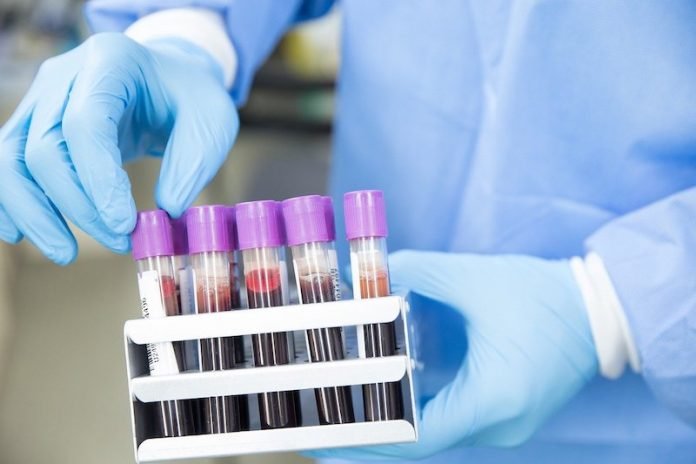
In a new study, researchers found that doctors can examine COVID-19 patients’ blood to identify those at greatest risk of severe illness and to pinpoint those most likely to need a ventilator.
The discovery could lead to new treatments to prevent deadly “cytokine storms” seen in severe cases of COVID-19.
It also may help explain why diabetes contributes to worse outcomes in patients with the coronavirus.
The research was conducted by a team from the University of Virginia School of Medicine.
In the study, the team found that the levels of a particular cytokine in the blood upon diagnosis could be used to predict later outcomes.
Cytokines—proteins produced by immune cells—are responsible for severe overreactions by the immune system, known as cytokine storms, linked to COVID-19 and other serious illnesses.
But the best predictor of COVID-19 outcomes was an “underappreciated” cytokine more associated with allergies.
High levels of that cytokine, IL-13, were associated with worsened COVID-19 outcomes regardless of patients’ gender, age, or other health problems.
The researchers also identified two more cytokines linked to severe outcomes, though the duo had less ability to predict the need for a ventilator.
The researchers say the discovery could become part of a scoring system to let doctors flag at-risk COVID-19 patients for closer monitoring and personalized interventions.
The finding also identifies cytokines doctors could target as a new treatment approach.
They say the immune response that they discovered to predict severe shortness of breath in COVID-19 is known in other pulmonary diseases to cause damage.
So this could lead to a novel way to prevent respiratory failure in individuals infected with the new coronavirus, by inhibiting this immune cytokine.
They plan to test this in a model of COVID-19 prior to considering a clinical trial.
One researcher of the study is Dr. Bill Petri of UVA’s Division of Infectious Diseases and International Health.
Copyright © 2020 Knowridge Science Report. All rights reserved.



